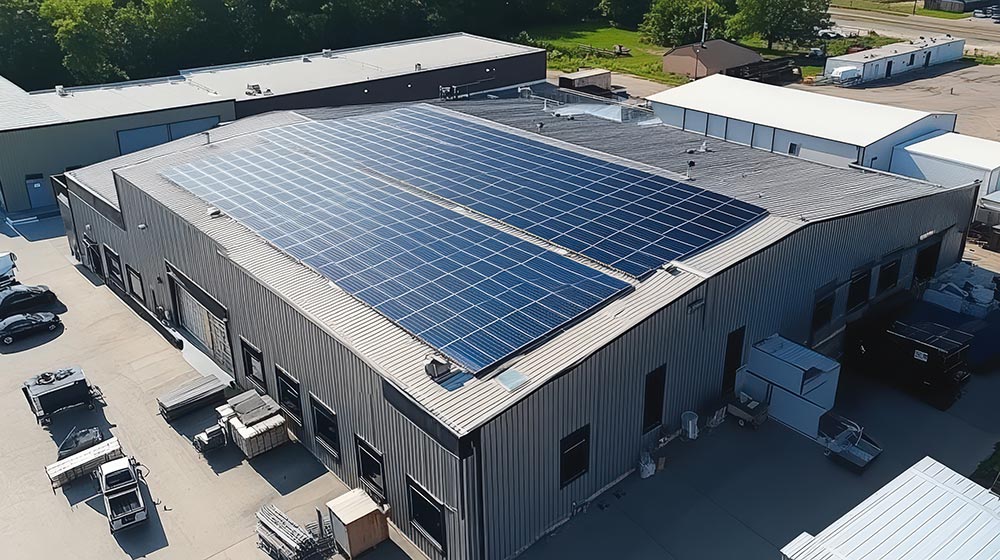Many companies in a variety of industries are reducing their energy costs by installing commercial solar panels, because it allows them to convert sunlight into usable electricity. By moving away from traditional energy sources to a cleaner and more renewable system, businesses can not only have a financial advantage in an increasingly global market but can also reduce their carbon footprint.
According to a recent report by the National Renewable Energy Laboratory, the top 25 companies in the United States were responsible for approximately 11% of the country’s distributed solar capacity. American businesses also accounted for 36% of the country’s electricity sales in 2013. So as more of these companies move toward the use of cleaner and more renewable energy sources (such as solar power), the more they can contribute to a major shift in the country’s energy consumption habits.

Here are some important considerations for installing solar panels on your commercial building.
#1: Roof Condition
This is one of the most important considerations for roof-mounted systems. Not every system is the same, but the Return on Investment (ROI) can be significantly affected if the roof needs to be replaced during the early part of your system’s lifespan.
If your building’s roof is in poor condition, you may want to consider replacing it (which works well for installing a new solar system). It would be a great opportunity to improve your roof’s condition while also making sure your warranty will remain valid during the designated period.
#2: Facility Structure
Roof-mounted solar panels can add more load to your roof structure, so it must support the extra weight. Loads are calculated by using engineering documentation from racking manufacturers, as well as from local and state code requirements.
#3: Electrical Infrastructure
Solar power systems must be connected to the building’s electrical infrastructure. In many cases, it’s too small to support a proposed system. It may also be too old or too hard to connect to without making major changes. If your building’s electrical system is old and needs to be replaced, this would be a great time to make accommodations for a solar panel installation. They can be connected to the new equipment and would cut your operating costs over the long term.
#4: Load Profile
Depending on your utility policies, the solar system you install on your building will most likely be sized to minimize the amount of energy that’s exported to the grid. This is done by matching the solar output profile to your building’s load profile (which measures how much power it’s using).
If your building uses most of its power during the middle of the day, it will most likely be a great match for commercial solar panels because their production will be the highest at that time. But if you use all of your power early in the morning or late in the evening, the size of your system may need to be reduced because it would be directly offsetting energy efficiency.
All of it depends on utility policies and rate schedules. Some of them eliminate the need for load profile considerations, which is more favorable for a solar panel installation. Other policies may require you to use it to determine your system’s size. Some facilities can even manipulate their load profiles to maximize the benefit of installing commercial solar panels.
#5: Future Facility Plans
Solar power is a significant asset that’s usually sized and designed to fit your building’s characteristics. So if you’re thinking about making any major changes in the future, you should consider that as you size and install your solar system.
If you’re planning to expand your facility, your solar panels should be able to accommodate the new expansion in terms of infrastructure design, capacity, equipment location, and other important factors. You may be planning to make changes to your facility loads. You may also want to implement more automation, shift the timing of your loads, or change the facility’s overall function.
All of these examples are important things to consider when you’re sizing your solar system, so be sure to mention this to the provider. Every facility is different, but a reputable solar panel company can help you evaluate your facility and come up with a comprehensive plan that will allow you to use commercial solar panels both safely and effectively.
If you’re looking for one of the best places to get commercial solar power in Corpus Christi, be sure to reach out to Solar Power Integrator.
